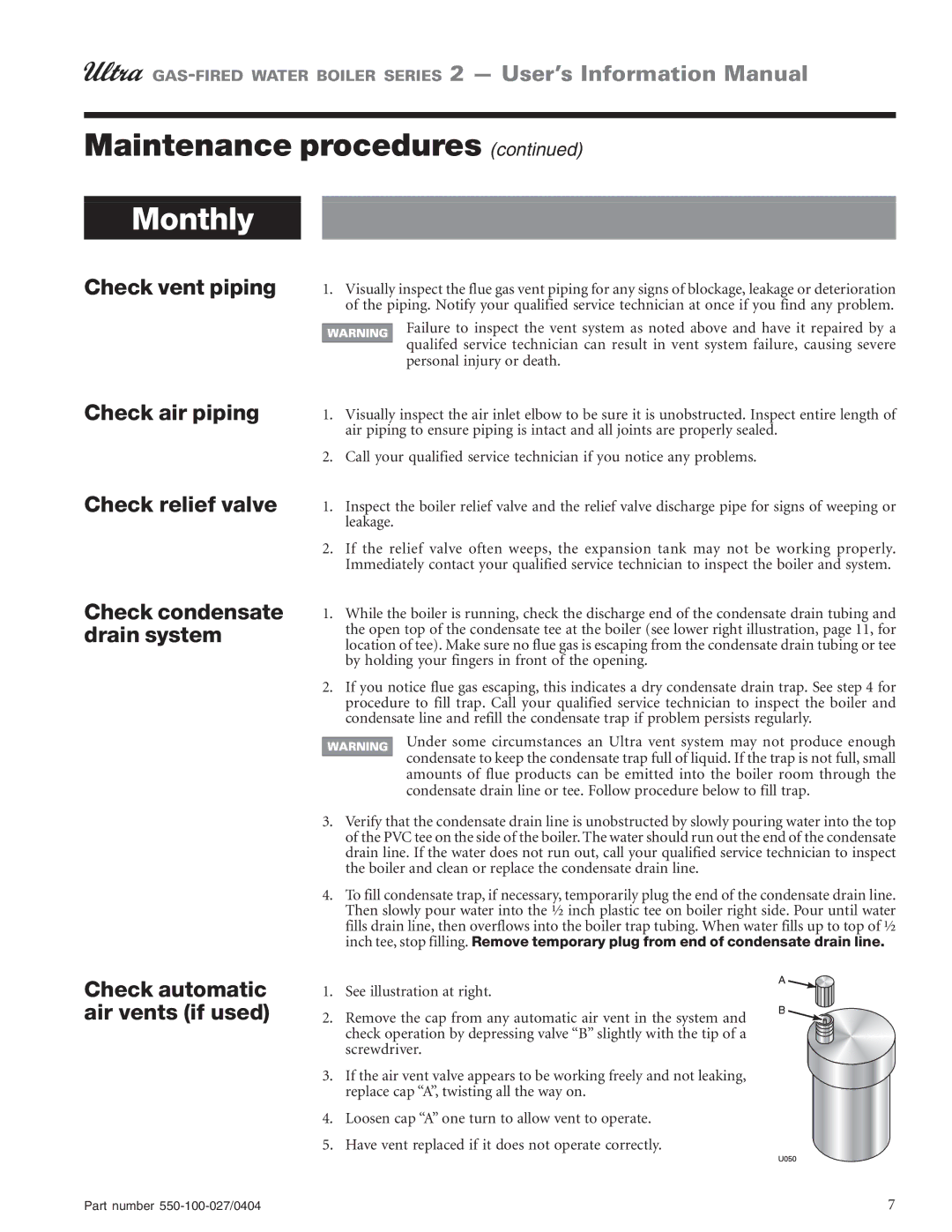Series 2 specifications
The Weil-McLain Series 2 is a highly regarded boiler system known for its robustness, efficiency, and ease of installation. Designed primarily for residential and light commercial applications, the Series 2 boasts a variety of features that cater to diverse heating needs.One of the standout characteristics of the Series 2 is its cast iron construction, which provides durability and longevity. Cast iron is well-suited for heat retention, allowing the boiler to operate more efficiently and deliver consistent warmth. The Series 2 is available in multi-fuel options, accommodating both natural gas and propane, making it versatile for various installations.
Efficiency is a key feature of the Weil-McLain Series 2, with annual fuel utilization efficiency (AFUE) ratings that meet or exceed industry standards. This ensures that homeowners can enjoy not only a comfortable living environment but also reduced energy bills. The Series 2 is designed to provide optimal performance, minimizing fuel consumption while maximizing heat output.
Another innovative aspect of the Series 2 is its user-friendly control system. Equipped with advanced controls, the boiler allows for precise temperature management and can easily be integrated with existing heating systems. This adaptability is crucial for ensuring that the boiler matches the specific heating demands of any space, increasing overall comfort levels.
Installation is straightforward, thanks to the boiler's thoughtful design. The Series 2 features a compact footprint, allowing for flexible placement in various settings. Additionally, Weil-McLain provides comprehensive documentation and customer support, making it easier for technicians to install and maintain the system.
The Series 2 also includes features aimed at ease of maintenance. Its clean-out ports facilitate quick access for servicing, ensuring that the boiler remains in peak operating condition throughout its lifespan. Weil-McLain’s commitment to quality means users can expect reliable performance year after year.
Overall, the Weil-McLain Series 2 stands out as an excellent choice for those seeking a dependable, efficient, and straightforward heating solution. Its combination of durable construction, high efficiency, and user-centric design makes it a leading option in the boiler market, appealing to both homeowners and professionals alike. Whether for a new installation or a replacement, the Series 2 is poised to deliver exceptional heating performance.

